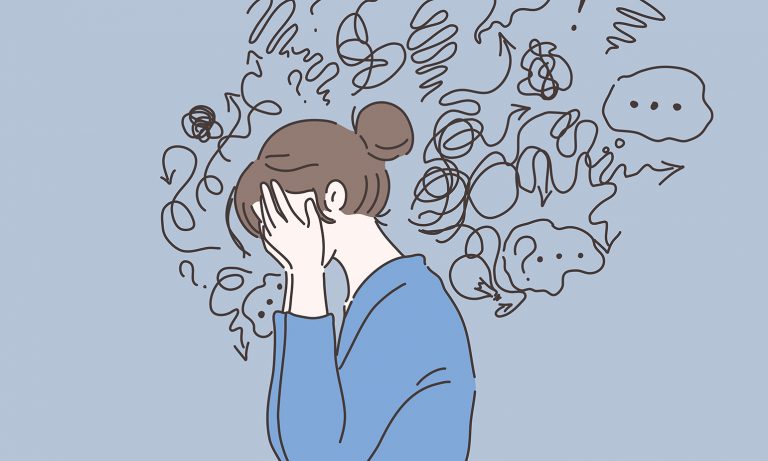Anxiety is a feeling of fear, dread, uneasiness. Occasional anxiety is part of life as we might feel anxious when faced with some problems or severe work load or in some stressful situations so it is normal to get anxious in some situations. Anxiety can be grouped from mild to severe type. Mild anxiety helps us to get more focused, it boosts our energy but if it gets severe it may end up in symptoms like nightmares, panic attacks, sweating, intense fear, phobia, depression. There are mainly three types into which anxiety can be classified, likely Generalized anxiety disorder(GAD), Panic attacks, Phobia-related disorder.
Generalized anxiety disorder(GAD) includes excessive anxiety or worry comes from personal health, work load, social interactions, financial problems which can last up to 6 months. Symptoms includes feeling restless, wound-up, or on-edge, being easily fatigued, having difficulty concentrating; mind going blank, being irritable, having muscle tension, difficulty controlling feelings of worry, having sleep problems, such as difficulty falling or staying asleep, restlessness, or unsatisfying sleep.
Panic attack is a sudden feeling of extreme anxiety or intense fear without a clear cause or when there is no danger, people may experience: heart palpitations, a pounding heartbeat, or an accelerated heart rate, sweating, trembling or shaking, sensations of shortness of breath, smothering, or choking, feelings of impending doom, feelings of being out of control.
Phobia is an intense fear of a particular object or situation. People with a phobia may have an irrational or excessive worry about encountering the feared object or situation, take active steps to avoid the feared object or situation, experience immediate intense anxiety upon encountering the feared object or situation, endure unavoidable objects and situations with intense anxiety.
Treatment with psychotherapy, medication, self-help is generally done in anxiety. In psychotherapy, talk therapy, cognitive behavioural therapy can help. Medications include anti-depressants, anti-anxiety drugs, etc. Support groups, stress management techniques also can be done to overcome anxiety.






This comment has been removed by the author.
ReplyDeleteA carbon footprint is the total amount of carbon emission that are generated by our actions. We at Low Soot will tell you many benefits of carbon percentage calculator and provides the best carbon footprint calculator.
ReplyDelete